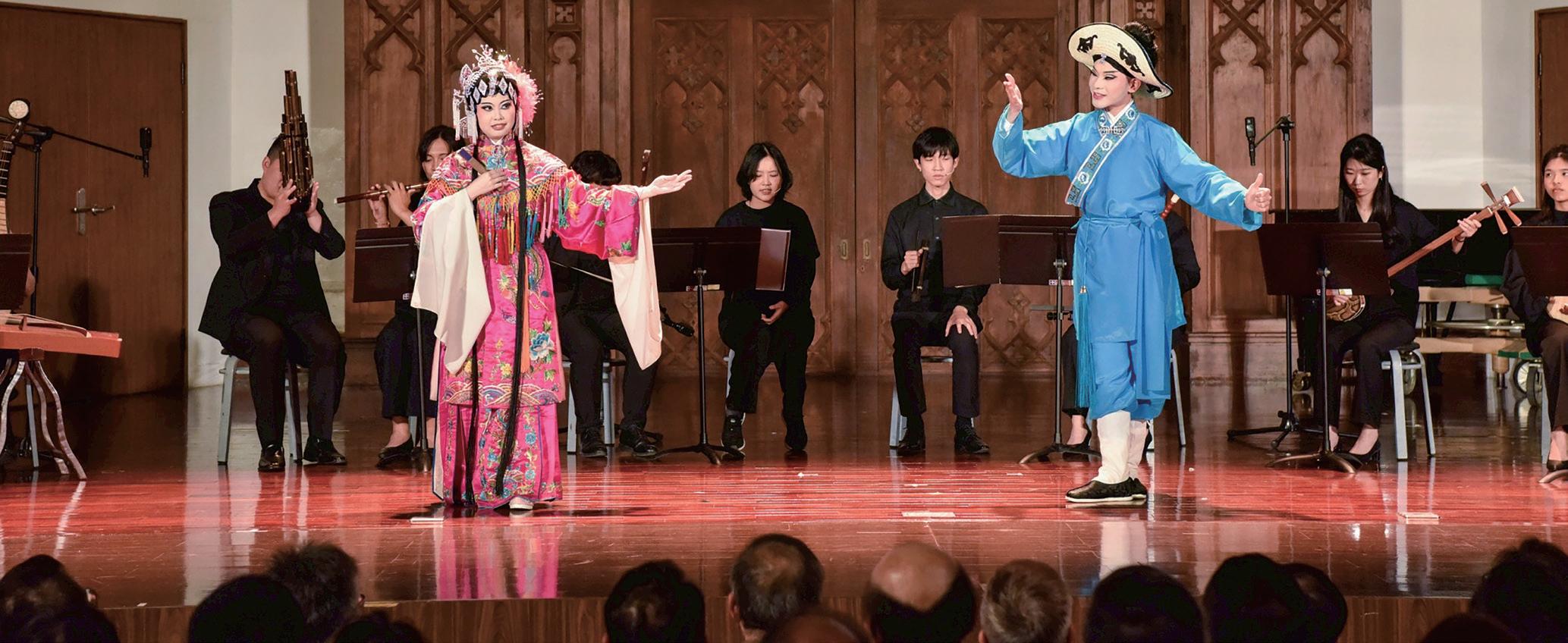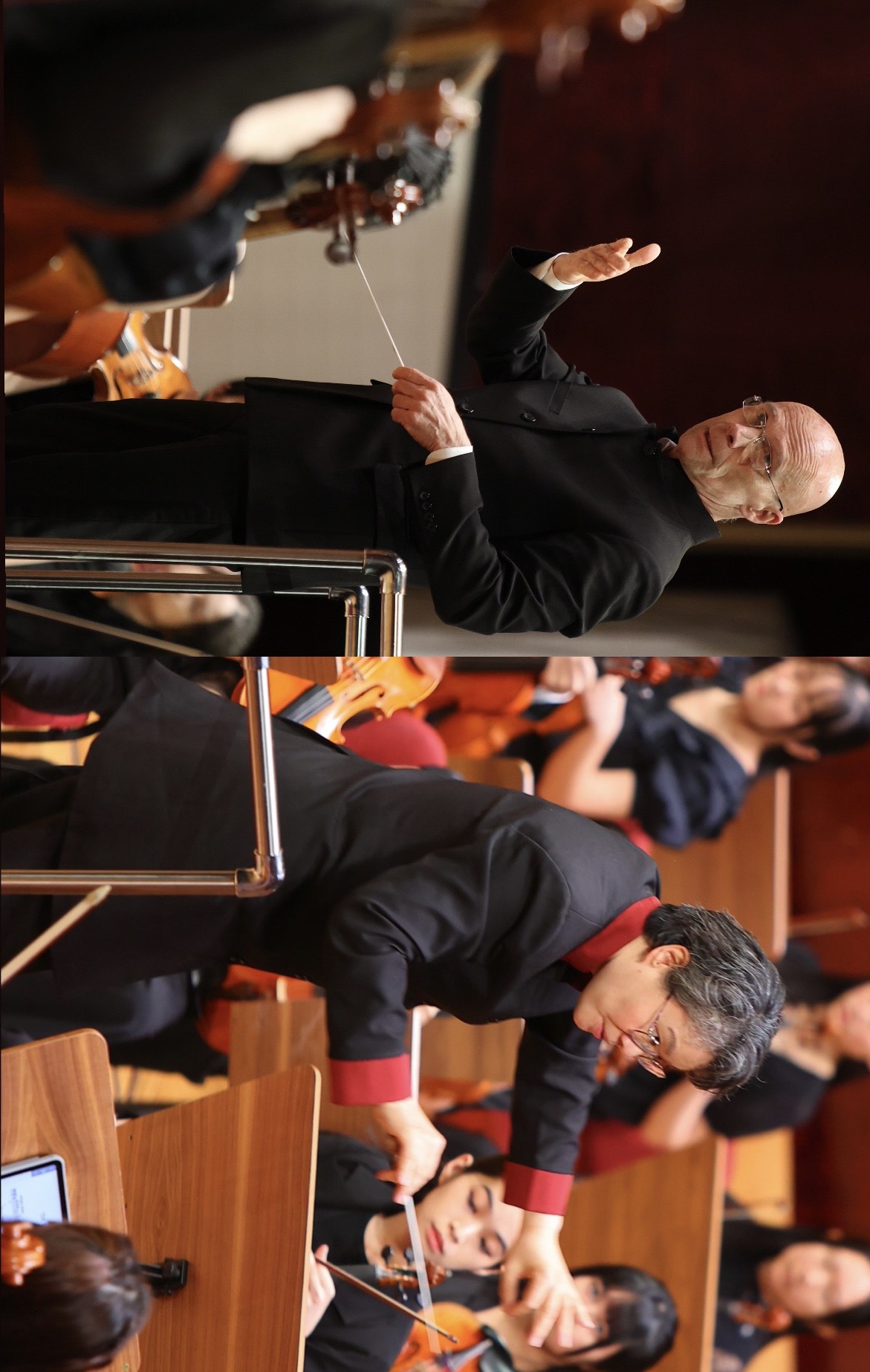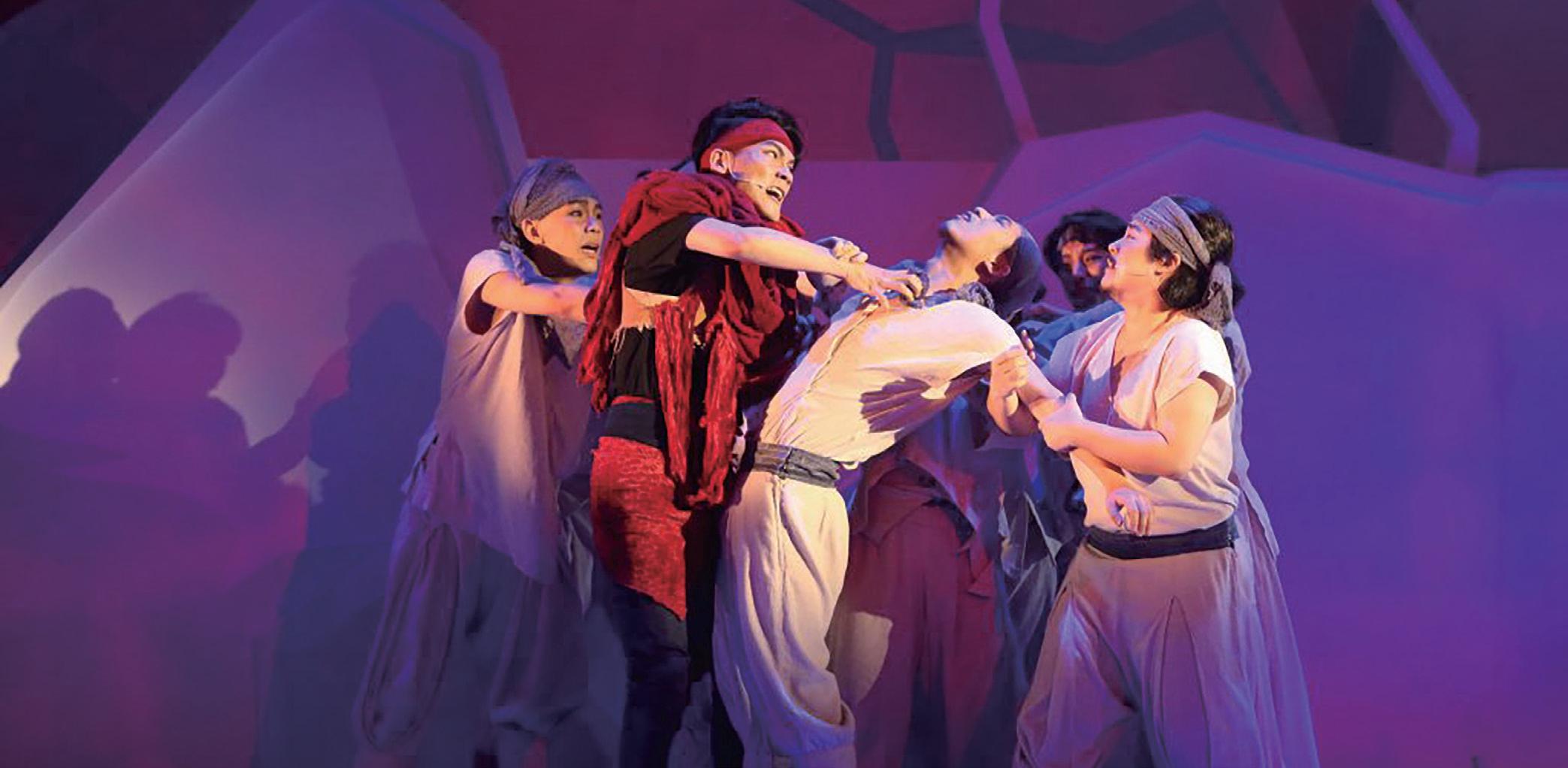
7 minute read
On With the Show: NTNU Performing Arts at 20
On With the Show
NTNU Performing Arts at 20
On a humid summer evening in June 2025, a small audience gathered at the Liang Shih-Chiu Residence behind the NTNU Library. Performers moved through the tatami rooms and courtyards of the restored Japanese-era home, transforming the space into an intimate stage for Grandma’s Clothes. Meanwhile, on the 10th floor of Union Building I at NTNU’s Heping II campus, student crews adjusted lights and cued sound in the Zhi Yin Black Box Theater for the Thrilling Improv Troupe’s (TIT) show. This was the first NTNU Fringe Festival—an event that felt both improvised and intentional, stitched together with resourcefulness and care. The performances were original, the production student-led. While the festival marked the department’s 20th anniversary, its tone was not nostalgic but exploratory. It asked what performance can become when artists build it themselves, piece by piece.
“Begin the Beguine”
When NTNU launched its Performing Arts Department in 2005, Taiwan had little infrastructure for developing original musical theatre. “There was talent,” said Professor I-Fang Wu, director of the Performing Arts Department and a former principal dancer with Cloud Gate Dance Theatre. “But we needed to build a Sinophone repertoire from the ground up: from writing to training to production.”
Musical theatre is not new to Taiwan’s performing arts landscape. Forms like gezaixi, folk opera, and potehi (glove puppetry) are still performed and appreciated, but they rarely reflect contemporary Taiwanese life, whether its people, events, or aesthetics.
In 2002, Taiwan’s Council for Cultural Affairs convened a working group to assess the future of Taiwanese musical theatre. The group concluded that meaningful development required academic infrastructure to support original work grounded in Taiwan’s languages and creative practices. In response, NTNU established a graduate institute three years later with a clear mission: to cultivate artists capable of creating original performance rooted in Taiwan’s cultural context and connected to global discourse.
“Bare Necessities”
In 2014, nearly a decade after its founding, the department introduced an undergraduate program with a project-based curriculum. Students enter through Taiwan’s general university entrance exam rather than by audition, so many arrive with little formal theatre training.
“Some students come in with very little formal training but they are full of passion,” said Wu. “In the first year, the teachers bring them up to speed, from basic breathing techniques to developing the skills they need to match their potential.”
From the start, students devise short original works. By their third year, they stage 50-minute productions. Final-year capstones involve writing, casting, budgeting, marketing, and producing a full-length musical at a professional venue. They rotate through every major role from actor, stage manager, producer, to designer, crew, and marketing, and gain a comprehensive understanding of collaborative production.
“Seniors start scouting first-year talent the moment school begins,” Wu said with a laugh.
The curriculum integrates theory with practice. Students study dramatic literature, performance studies, and theatre history alongside rehearsals. From Shakespeare to Deleuze and Guattari, and contemporary Sinophone thinkers, they develop critical frameworks to analyze their work and engage across disciplines.

“Tradition!”
Though the program enrolls only about 30 undergraduates annually, it sustains a wide-ranging curriculum. Its faculty includes working directors, choreographers, producers, and researchers active across Taiwan and abroad. Areas of expertise span musical theatre, devised performance, theatre history, arts marketing, and digital media. Many hold advanced degrees from institutions in the United States, United Kingdom, France, and Japan, bringing diverse global perspectives into the classroom.
In May 2025, two 20th-anniversary performances honored program founder Professor Emane Wu. A vocal recital curated by Professor Yen-I Lee reunited alumni on stage, while Rondo of Love and Time, an original musical with artistic direction by Professor Chi-Ming Liang, founder of Taiwan’s Godot Theater Company, reflected on the department’s early years.
Nobel Laureate Gao Xingjian has served as Chair Professor since 2011. His interdisciplinary writings on literature, aesthetics, and theatre form part of the curriculum and have inspired student work. In recent years, the department has staged adaptations of Mountains and Seas and Requiem for Beauty, performed at national venues including the National Theater in Taipei and the National Taichung Theater, where Of Mountains and Seas opened the opera house’s inaugural season.
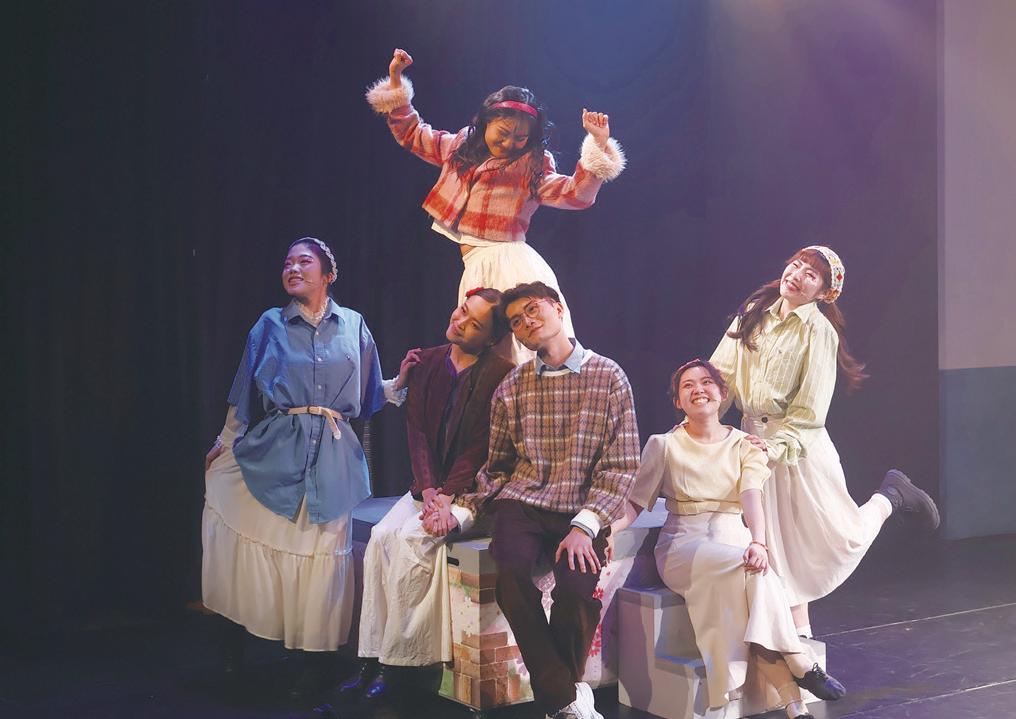
“The Room Where It Happens”
Being part of a comprehensive university allows for meaningful cross-disciplinary collaboration. The department frequently partners with NTNU’s programs in design, music, computer science, and education.
One standout project was Rice Dragon 360, an immersive performance presented at Taipei’s Nuit Blanche festival in November 2024. Inspired by a Hakka ritual honoring the Earth Dragon God, the work invited audiences into a 360-degree projection space where they guided a digital dragon using motion-sensing technology. A live performer, dynamic soundscapes, and interactive visuals blended folklore with digital innovation.
The production brought together students and faculty from the Performing Arts, Design, and Music Departments, and was supported by the Ministry of Education’s Forward Looking Display Technology Plan. It exemplifies the department’s vision of performance as a space where tradition and technology meet.
Space on NTNU’s central Taipei campus presents creative constraints. Without a large auditorium, students adapt productions to venues like the Art Museum, heritage buildings, and the black box theatre.
“Working with what we have, and finding creative solutions, is part of the training,” Wu said, noting that these limitations often prompt inventive staging choices and pedagogical flexibility.
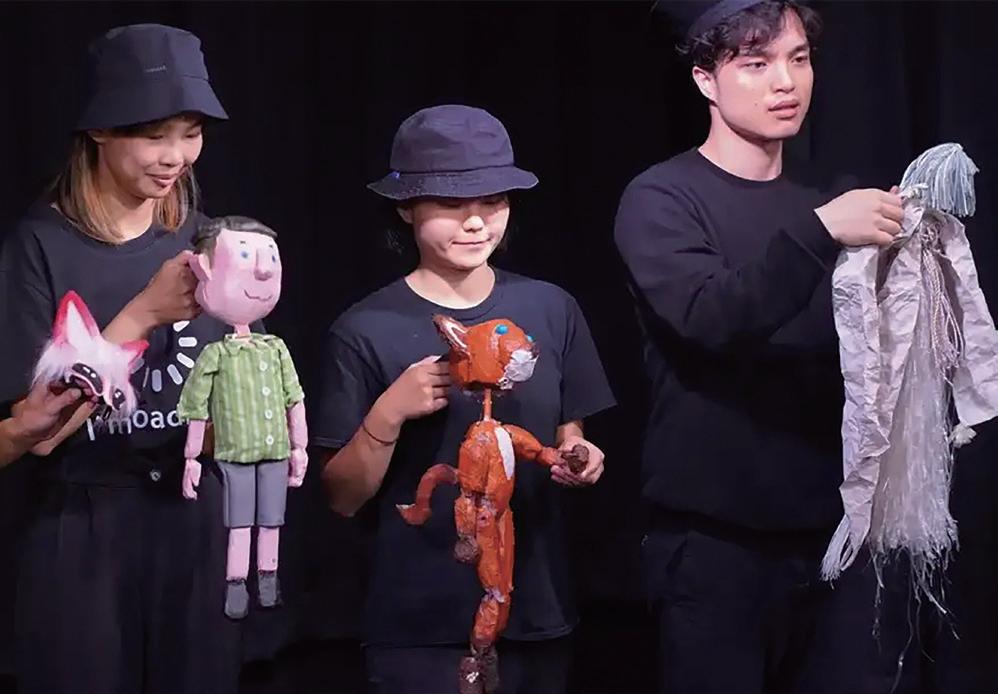
“A Whole New World”
As part of its 20th anniversary celebrations, the department hosted Taiwan’s first international academic conference on musical theatre in April 2025, with Professor Elizabeth Wollman of Baruch College as keynote speaker. Scholars from Taiwan, Japan, Australia, Hong Kong, and the United States presented research on adaptation, multilingual performance, musical comics, and more. A roundtable brought together producers, policymakers, and educators.
Since 2009, Professors Chi-Ming Liang and Kang-Kuo Ho have led student-created productions to fringe festivals in Edinburgh, Off Avignon, and Adelaide. These trips immerse students not only in performance but in the full scope of international touring: booking venues, generating publicity, and reaching unfamiliar audiences. In 2025, students also pitched their shows to international producers at a market conference during the Adelaide Fringe.

“I Know Where I’ve Been”
Even as the department expands globally, it remains committed to Taiwan’s local cultural ecosystem. The NTNU Fringe Festival, inaugurated in June 2025, embodied this mission. Modeled on international fringe events, the festival took place across campus venues and featured work by students, alumni, and guest artists. Students handled technical production, scheduling, and backstage operations, gaining hands-on experience under real-world conditions.
Extending the department’s presence well beyond campus, many graduates now work in major performing arts institutions across Taiwan, often returning to collaborate through teaching, mentorship, or co-production.
In 2026, NTNU will launch an English-taught master’s program in Performing Arts Industry and Marketing. Focused on international touring, cultural policy, and arts management across the Sinophone world, the program marks the department’s next step: not only sending students out, but bringing the world in.
